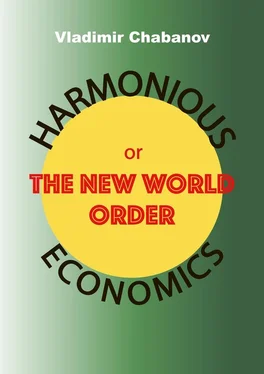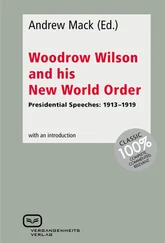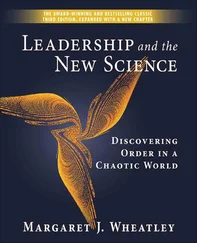1 ...6 7 8 10 11 12 ...28 The Hindu people believe that the Deity inhabits all things and, above all, any human being. In western religions, on the contrary, only humans are endowed with a soul, as well as some other living beings. In eastern cultures, human soul is identical to the souls of other natures of the Universe, to those of all things existing. This soul is described as follows: “ He is the child of the waters, the child of the forests, the child of things stable and the child of things that move. Even in the stone he is there ’ 19 19 Cit. ex Satprem, Sri Aurobindo, or The Adventure of Consciousness (Mira Aditi, 2008).
(Rigveda, I.70.20). In the West, however, nature is inanimate, and the man is a consumer, capable of governing Nature and all of its components.
A Christian attains the supreme knowledge through losing his own self, while an Indian preserves the immutable foundation of his nature through rigorous respect of its unity with the deity or the universal nature: “ The heavens beyond are great and wonderful, but greater yet and more wonderful are the heavens within you ’ (Sri Aurobindo [18]). On the contrary, a European is more convinced by the visible reality with its materiality and weight. That is why a western man seeks rising above the World, while an Indian turns to the original sources of Nature.
As the result, the western Christian culture sees man free but at the same time fully subordinated to the will of God. Or, at least, to the church – the only institute of salvation on earth authorized by God. Thus, a European wants to mollify this “authority’ with his fear, his vows, his prayers, with obedience, self-humiliation, good deeds, and glorification. And, from time to time, with indulgences. A western person is tortured by the belief in absolute gods that share human passions and weaknesses, but in fact are nothing else than a veil of illusions woven by the imperfect human mind.
Deep down the western man feels his insignificance before God and therefore does not dare protect his “I” against Him. On the contrary, in the East the man is the creator of his fate and the author of his self-perfection, as well as an integral part of God.
Suffice it to tweak this formula and substitute God with a different entity, for instance, with power, money or passion, to render a portrait of a European complete: a diligent, timorous, humble, and enterprising person who avidly clutches to the certain goods of the world he lives in, such as property, health, knowledge, money and material values. These are the founding elements of the liberal economic model forged by the Europeans. The western man is convinced that wealth comes from the outer world, that is why he avidly tries to fill his empty soul with it. He wants to seize the earthly comforts from other people to assure his own well-being at any price. “ The western civilisation prefers having to being ’ (A. Macchirgiani). And this should not come as a surprise, as “ who holdeth not God as such an inner possession, but with every means must fetch Him from without ’ (Meister Eckhart’s Schriften und Predigten) 20 20 Cit. ex C. G. Jung, Psychology and Religion Volume 11: West and East. Collected Works of C.G. Jung (Routledge, 2014), 483.
.
While eastern philosophy and its perception of the world are directed inside the human being, western philosophy looks on the outside. It understands the dialectics of the oppositesbut cannot conceive their harmonious coexistence.That is why such philosophy is bound to run to extremes: it accepts fight and competition but is alien to cooperation of people, things or notions. As the two civilisations we have been dealing with so far understand the main questions of the world in strikingly different ways, the life within each of them is easily disconnected from the whole reality to become artificial and inhuman.
It is all logical then that the economic lifestyle and the production and distribution methods could not remain untouched by the profound differences between western and eastern civilisations. Thus, the eastern path consists in the subordination of the man by the state or by his own inner self. As opposed to the East, the West seeks to break the dead unity and give freedom to the individual forms of life. At the same time, it gets beyond harmony to encourage global egotism. This is why capitalism, based on the individualism cult, is alien to eastern mentality and ends up distorting it. The West does not admit other economic system than one driven by self-interest, the most shameful among the human qualities, and not by the desire to provide people with the means of existence, that is why unmercenary economics would not work as well in the West as in the East.
Selfish economics conforms more to western mentality, and, consequently, it is more beneficial for it, assuring prosperity of the West. However, people of other cultures feel uncomfortable within such economic system, and that is why they often lose to the West. Western economy is detrimental for the life of other cultures, and it does not correspond to their understanding of Truth and Justice.
The East admits that the common prosperity stands above personal well-being: “ The manifestation of unity vanquishes even armies… The entire world is divided along a boundary line between individual and general welfare. If we act within the sphere of the general welfare with sincere intentions, then in support of us stands the entire reservoir of cosmic accumulations ’ (Agni Yoga – The Living Ethics). 21 21 Cit. ex Leaves of Morya’s Garden I (The Call) (Agni Yoga Society).
The East is capable to “ learn above all to separate Head - learning from Soul-Wisdom, the ‘Eye’ from the ‘Heart’ doctrine ’ (Helena Blavatsky [15]) 22 22 Cit. ex H. P. Blavatsky, The Voice of Silence (Theosophical University Press Online Edition).
. The West, meanwhile, keeps worshipping logic, intelligence and rationality, and often ignores the heart with its uncertain, illogical and erratic ways.
In the East, people understand that even though the accumulation of all the necessary things is indeed a source of well-being, no material goods would satisfy the inner world. That is why it is no surprise for the East that in the quest for pleasures humans are pestered by a growing hunger. And the greater the pleasures, the stronger the hunger. The man himself becomes the object of someone else’s craving, as well as a source of trouble and other unknown calamities. The multidimensionality and the duality of the world are to blame here.
The lack of spiritual orientation in the West borders on mental anarchy. By consequence, any religious or philosophic dogma contributes to setting up some kind of order, and becomes a source of new knowledge and of psychic duality. As dogmas can be assimilated with spiritual hygiene they contribute to the variety of knowledge. On the contrary, the East proves sufficient, peaceful, and composed. The West generates hundreds of world visions, none of which is complete or fully feasible. And there is no surprise in this, as all of such theories aim at resolving some local issues, instead of uncovering their nature and relation with other phenomena. The main tool such theories use is the analysis of circumstances and not their synthesis.
As the result, the multitude of doctrines produced in the West do not only fail to enrich the human beings, but even deprive people of the feeling of unity of the Universe, of self-confidence, and of the chance to get to know the World they live in. In the end, people are obliged to obey the element, instead of controlling it with the help of their reason. This is how competition and market are born, instead of a plan, of cooperation, harmony, and unity. At the same time, these developments cannot protect the man of the West from personal dissatisfaction. He ends up better protected from poor harvest and flood than from spiritual defects or psychic epidemics, as he is unfamiliar with any immutable principles. “ The world wars have shown what a European is capable of when his intellect, having grown alienated from Nature, runs free ’ 23 23 [ Translator’s note: Translated by me.]
(C. G. Jung [17]).
Читать дальше












